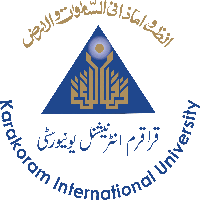Purposes and Objectives
- Dear Students, though there are countless Tips & Steps available on NET for Career Guidance and Counseling for college and university students. The purpose, why am I putting pen to the paper on similar subject is not only to explore and highlight the specific nature of strengths and weaknesses of the youth dwelling in the MOUNTAINOUS regions of Pakistan, but also to suggest solutions and options to build on strengths and overpower weaknesses, which is essential during the pursuance of academic and professional careers.
- The prime aim of Career Guidance and Counseling is to help graduating students to determine their strengths, aptitude, skills, specialized knowledge and interests in order to make choices regarding their career and a field that is in tune with their skills and job expectations.
- Self-evaluation or self-assessment is the key area for graduating students. Constant self-evaluation gives us the clear picture about our efficiencies and deficiencies. Hence putting our efforts in correct direction may lead us to the destination.
- In order to address the above mentioned student limitations pertinent to skill development, the honorable Vice Chancellor Engr. Prof. Dr. Attaullah shah established the Directorate of Students Development and External Linkages. The very idea of the directorate is to organize professional and skill development sessions on career guidance, and simultaneous the senior students are provided with internship opportunities in private/ public sector to earn practical experiences vis-à-vis preparedness for future job market.
- The fact that generally neither universities focus on students Skill Development nor students themselves except a few exceptional cases. Thence the concerned directorate prepared a comprehensive learning MODULE for university students to encounter the challenges in practical life as follows.
- How to develop a professional Curriculum Vitae, Resume and Bio-data?
- How to write a personal statement?
- How to write a covering letter?
- CV formats with latest trends
- Interviewing Skills
- Mock Interview practices
- How to make an effective presentation?
- How to develop communication skills?
- How to develop writing skills?
- Arranging INTERNSHIP opportunities for graduating students
- Arranging JOB fair (gala) for final year students
- Lectures on Mental Health and Stress Management
The ultimate purpose and objectives of this module is to support the students as LOCOMOTIVE effect to hunt opportunities for successful life.
- In fact, students face variety of challenges, issues & problems during their university years, which can be of social, psychological, financial, emotional and educational domain that may lead a student to grapple with some serious repercussions. It’s very important to define these TERMS for true understanding of the issue areas.
- Social: it has been experienced that many students even at university level have acute deficiencies in socialization due to shyness, hesitation and egocentric approaches. University is the most appropriate place for the exposure, orientation and effective socialization.
- Psychological: Sometimes students suffer from psychological disturbances. The reasons may be chronic family issues, disputes, diseases, rough & rude attitude, injustices, bias approaches and inferiority complexes. These psychological clutches do not let a student harmonize and channelize for peace of mind.
- Financial: In many families’ financial constraints are core issues that impact the overall way of life, particularly, the financial shortcomings put a student in shambles that strangulates the academic ambitions and future desires. In extreme conditions, students are not able to continue their academic pursuance or develop serious health-related issues.
- Emotional: Human kind is a beautiful blend of emotions and intellect. The important thing is, at university level education, a student should have enough emotional maturity to deal with issues without being short-tempered and accommodate him/herself with patience and empathy in a new challenging environment.
- Educational: Many students get enrolled in universities for higher education with zeal & zest. Unfortunately, sometimes they can’t meet the standards of learning and this causes disappointments and disenchantments.
The reason behind above obstructions is, the region has been geographically isolated and people are unprivileged due to relative poverty and technological limitations. These realities had a deep negative impact on their education and upbringings.
Remember: there is always a solution to every problem. In order to address these unfavorable and perennial problems which causes STRESS that MOSTLY people mismanage and make MORE problematic. In such circumstances consultation with Career Counseling Department will help to get rid of, BECAUSE ups and downs are part of life and dealing with it is art of life.
Finally, we have to accept the realities that life is full of advantages & disadvantages, challenges & opportunities, chills & thrills, so there is always a need to handle wisely for a better future.
Key Word: Shoot for the moon and even if you fail you will
land amongst the stars.
Amjad Ali
DIRECTOR
Students Development and External Linkages
Karakoram International University
Gilgit Baltistan





